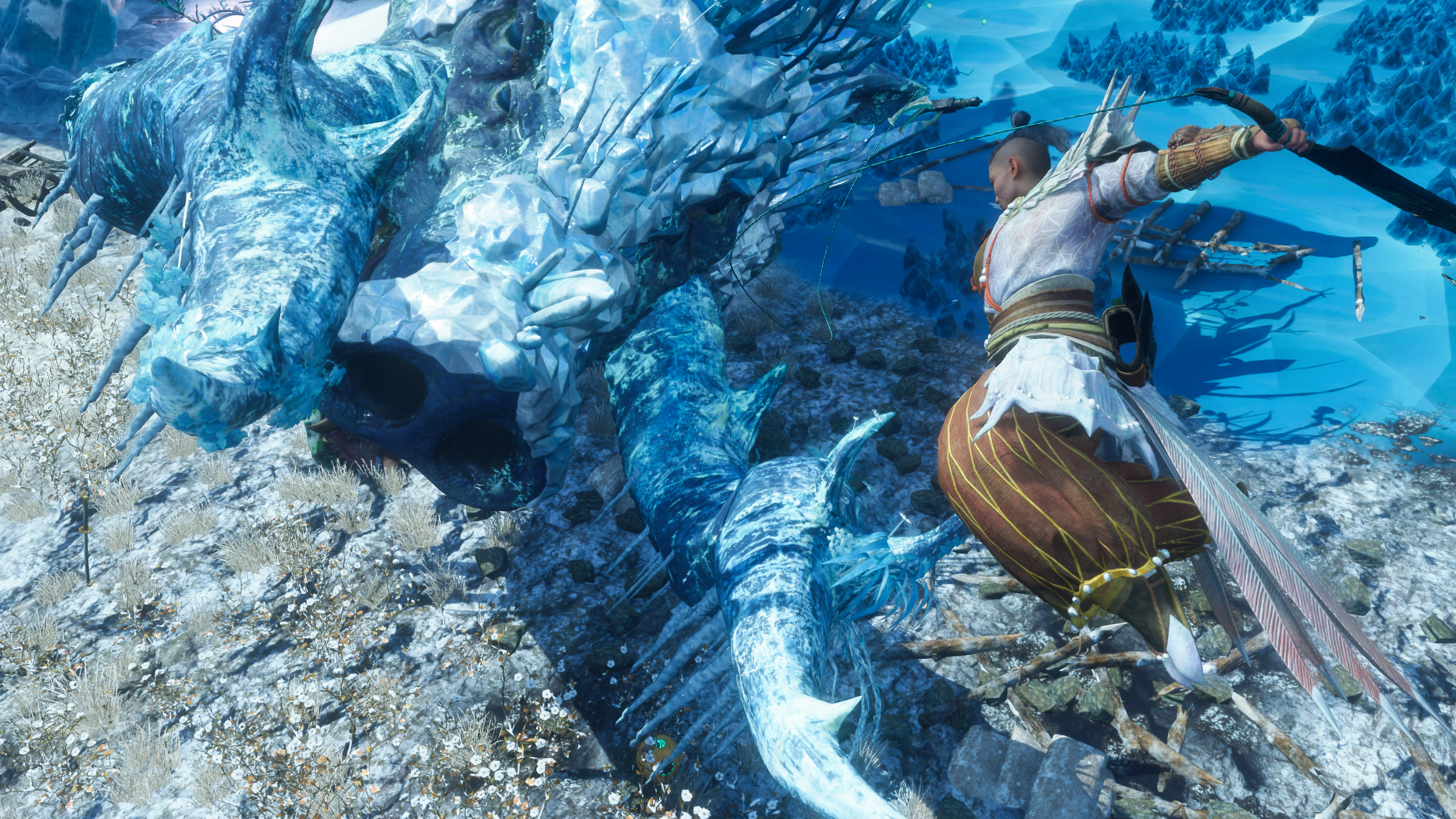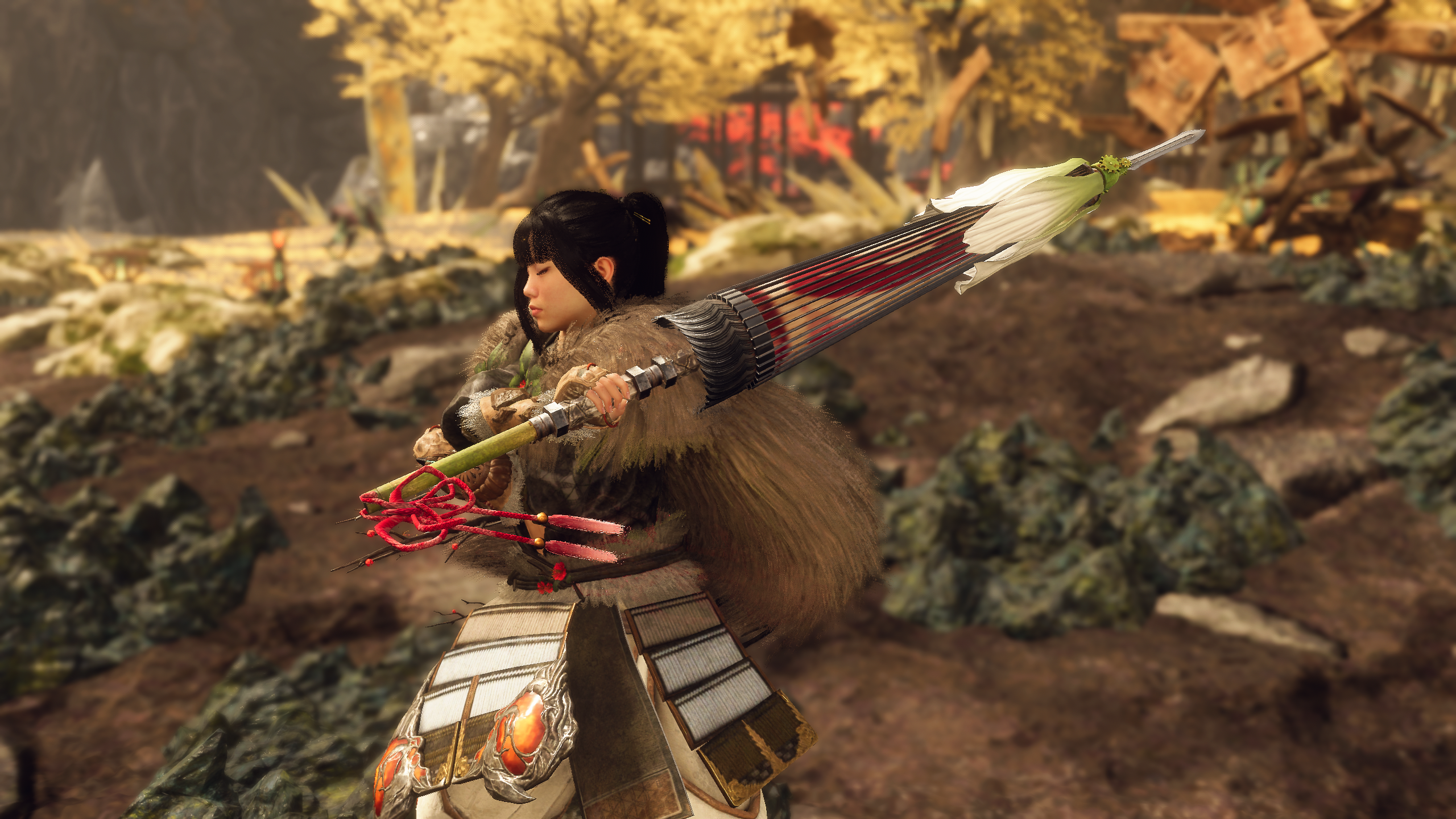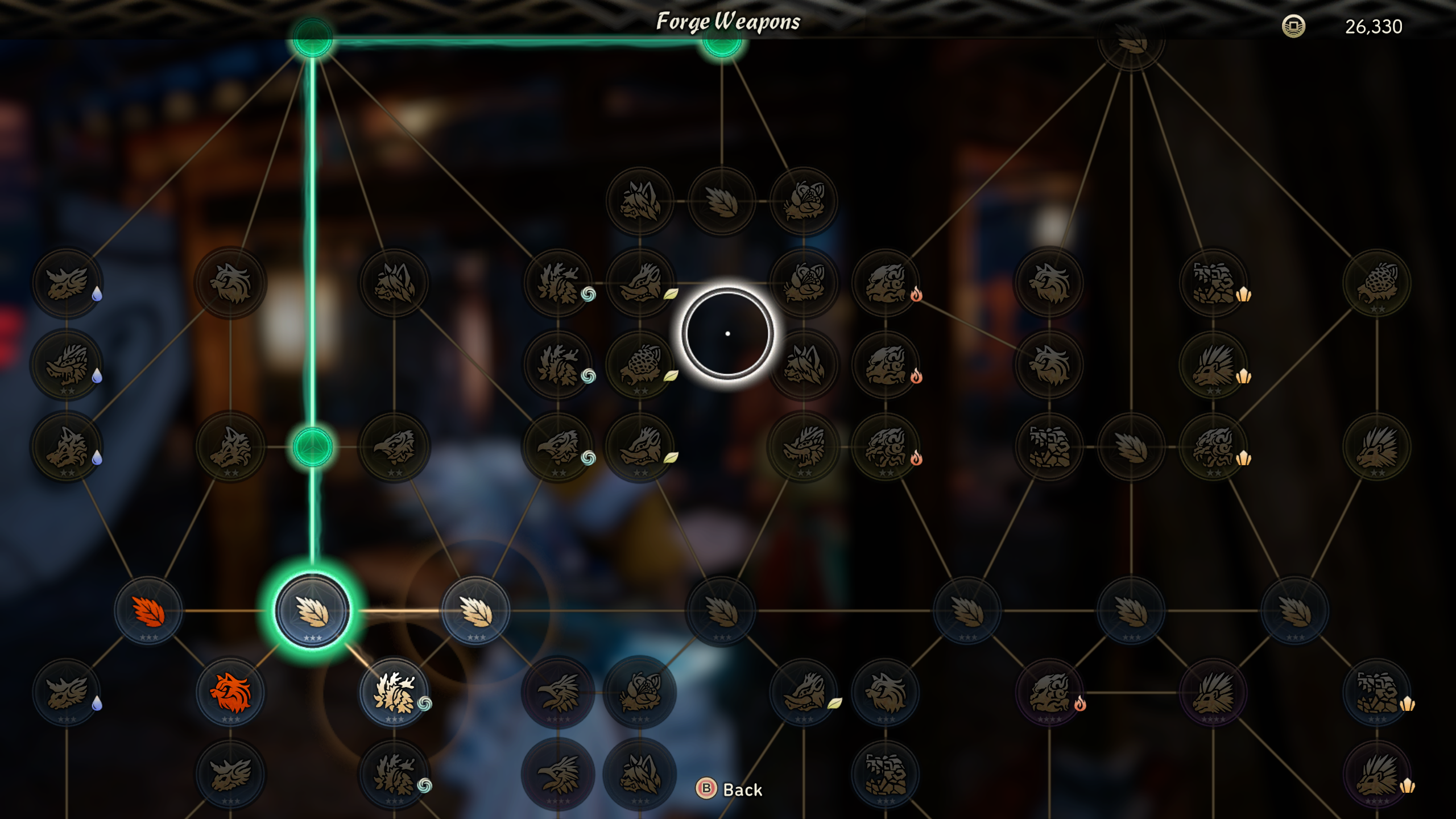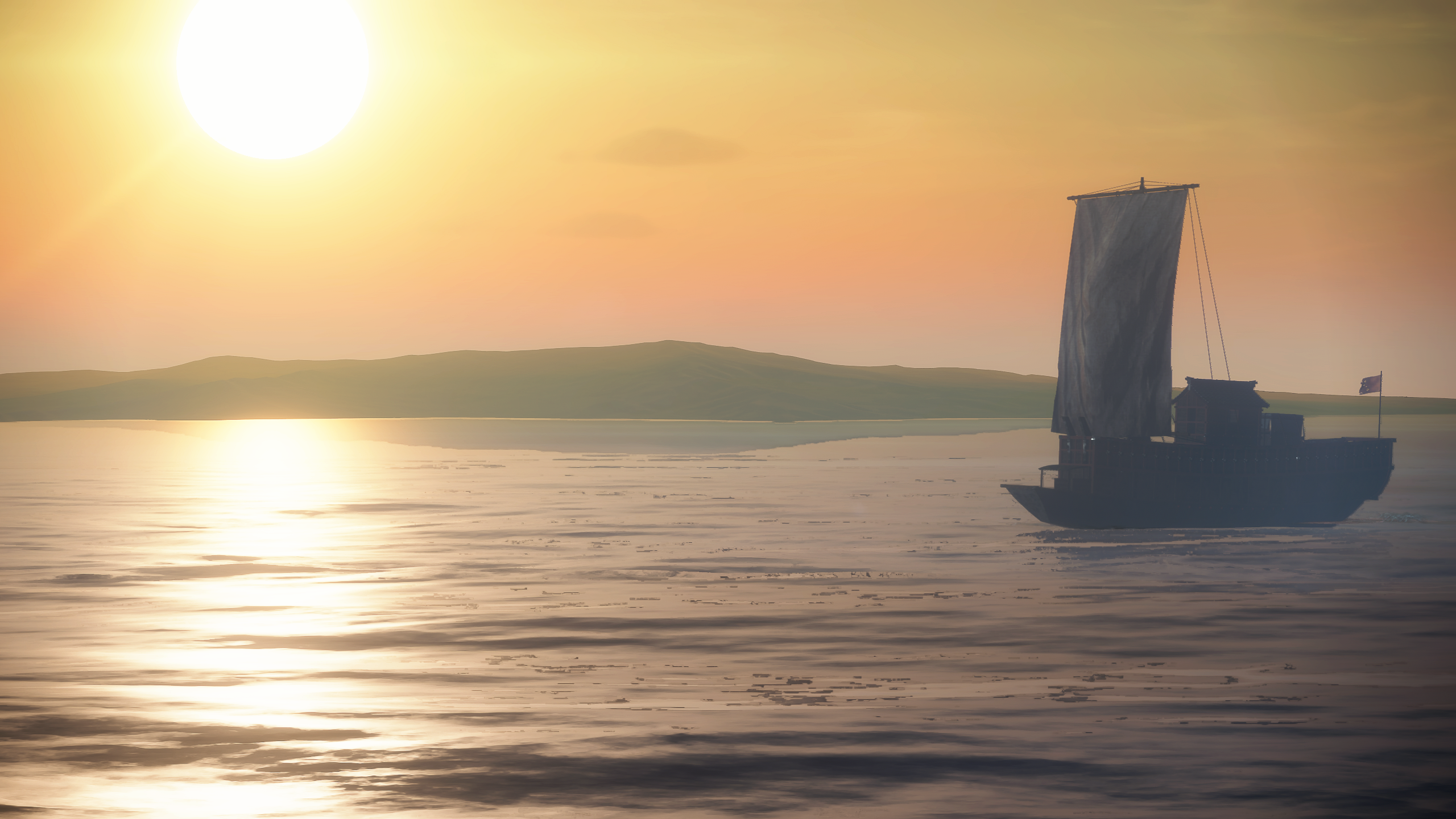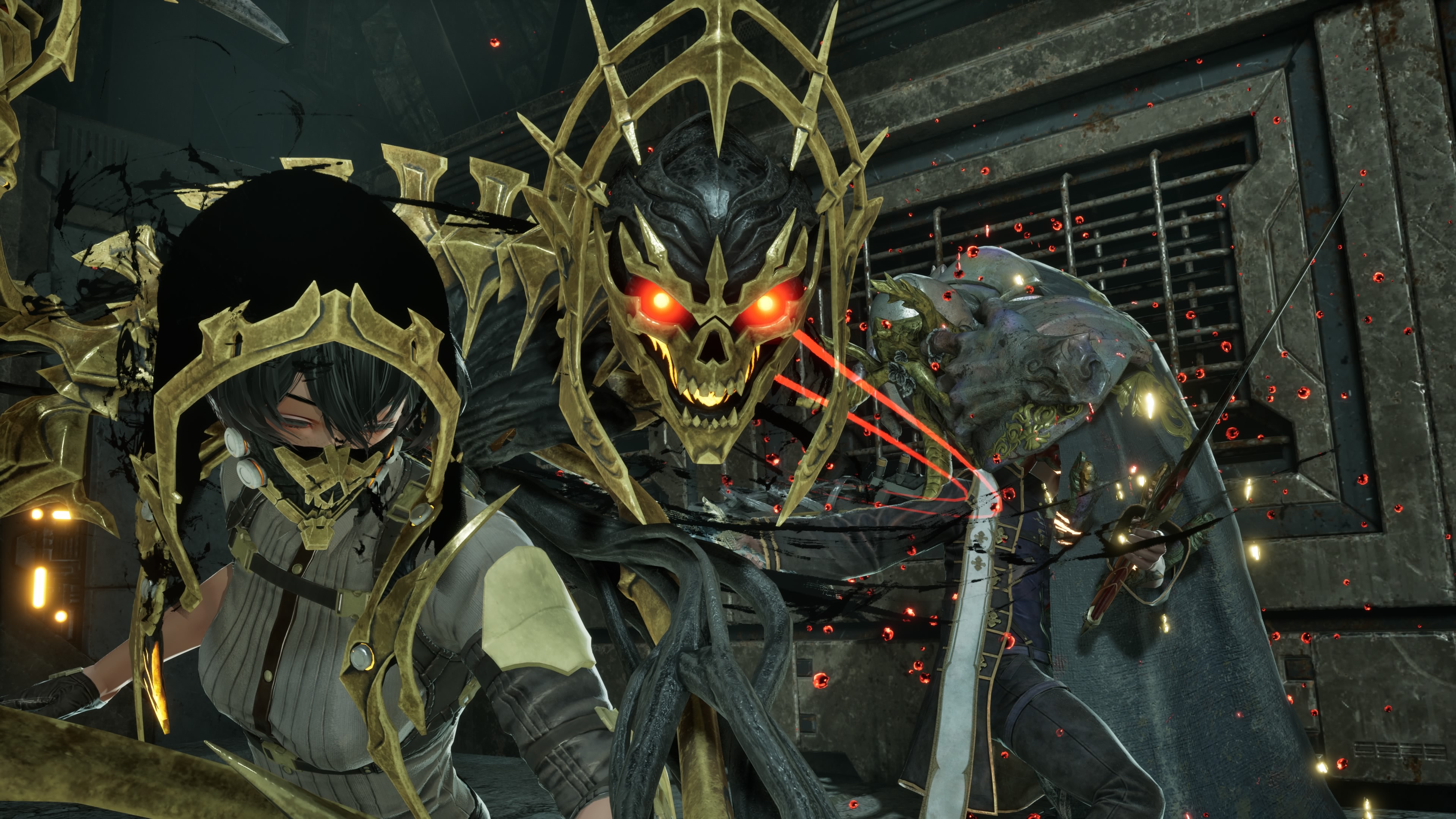Our Verdict
Sublime combat can only do so much to carry a flawed building system, too few monsters and terrible performance.
PC Gamer's got your back
What is it? Monster battling action.
Expect to pay: $70/£60
Release date: February 16, 2023
Developer: Koei Tecmo
Publisher: EA
Reviewed on: Intel Core i5-13600K, RTX 3070, 32GB DDR4-4000 RAM
Multiplayer? Yes
Steam Deck: Unverified
Link: Official site
The moral of Wild Hearts is not "man was the true monster all along," but it threatened to turn me into one a few hours before I started writing this review. I never imagined I could be one of those horrible rich people who stand over an endangered animal they just slaughtered for sport, a big Joker grin aimed at the camera. But when I finally killed the flying wind tiger that had been stymieing me for hours, I knew I had it in me.
Wild Hearts is a hunting game that pontificates on the delicate balance of nature at every opportunity, but there were more than a few moments where I was ready to raze all of feudal Japan and be done with some of this game's more tedious fights and aggravating performance problems. At least I can now do the next best thing: wear that dead tiger's skin as armor to go on a genocidal rampage. Wild Hearts won't technically allow me to wipe the species from existence, but it's good to have dreams, right?
Just like Capcom's Monster Hunter before it, Wild Hearts sets you on the trail of giant beasts that need culling. Each one has the complexity and ferocity of a boss in a Japanese character action game, with a set of telegraphed attacks to learn and a few even more powerful moves to throw at you when they become enraged. The goal in every fight isn't just to win, but to break specific body parts—usually the face, the tail, the claws or wings. The reward is some sweet, sweet crafting material to use for your next piece of armor or a slightly more powerful weapon.
The line that developer Koei Tecmo is walking here is blatant: You can picture the writers sweating as they try to contort dialogue around the words "hunt" and "monster" while every conversation is about the monsters you need to go out and hunt. The resulting world feels slightly less outright fantasy and slightly more folklore. It's explicitly set in feudal Japan and sticks with the Japanese words for much of its text: kemono (beasts, not monsters!) for the behemoths you fight; karakuri for the contraptions you build to help on your hunts; tsukumo for the mechanical creatures that serve as your AI companions.
The small cast of characters, like the blacksmith Natsume and the washed up samurai Ujishige you meet in the opening hour, are more subdued than Monster Hunter's campy anime hunters and buff cat chefs. Wild Hearts is deeply earnest, a change I appreciated at first and then quickly tired of since it results in every character droning on about how they want to protect the town and clumsily confessing their bog-standard NPC backstories. After a while I started taking my headphones off whenever someone started talking.
The more significant difference between the two games is that in Wild Hearts you're going to find yourself fighting the same monsters many, many times long before you've reached the endgame. There just aren't enough kemono, and it recycles designs far too quickly to keep the grind needed to advance through the armor and weapon trees engaging.
Worthy hunting
Wild Hearts does excel in the moments you're flying through the air with a claw blade latched into a monster's back, turning yourself into a projectile Edward Scissorhands, or when you land the third hit in a hammer combo string to crumple a monster's face in. There are only eight weapons, but the lean arsenal is full of delightful surprises. I loved the bladed wagasa umbrella, which attacks by spinning like a top and powers up when you parry a kemono. It's the only weapon in the game with a defensive option, which kept me alive and made me look like a cracked Mary Poppins in action.
Keep up to date with the most important stories and the best deals, as picked by the PC Gamer team.
Building feels like the rough draft of a feature that could be great in a sequel
Then there's the big gimmick: the karakuri, the traps and tools you build mid-combat with button combos on a controller or a few key taps on mouse and keyboard. At first you're spawning simple crates to leap off or springs that'll catapult you towards a monster, but soon you'll unlock fusions that erect a defensive wall or shoot off a harpoon to stun a monster and deal big damage.
Karakuri can lead to thrilling moments, like using a spring to just dodge a monster's charge and unleashing your own attack mid-leap, but much of the time it's frustratingly clunky. I lost count of how many times the game missed one of my button inputs or didn't place one of my karakuri in the right spot, leaving me with a worthless pile of torches and springs stacked in front of me and an empty resource meter. The system just isn't reliable enough.
Building feels like the rough draft of a feature that could be great in a sequel, and the same goes for the progression systems. In a game about constantly accruing resources, I was bewildered by how stingy Wild Hearts was with its armor. There are no little steps here to make yourself feel incrementally tougher, just upgrades that give your armor a human or kemono "affinity" which seems woefully underbaked, with a few scattered skills related to either alignment. I expect these skills will pay off for specialized endgame builds, but through much of the campaign they seem far less important than just finding armor that can help you survive a few hits from the right monster.
Every kemono has an elemental affinity and a "Mother Nature got shitfaced" design, like the sapscourge, a sap-covered, pollen-spewing asthmatic nightmare, or the goldshard, a porcupine with giant crystals for spines. Some of the kemono really surprised me in a good way, going beyond their obvious gimmick. The lavaback, a giant flaming gorilla, seems straightforward until he's enraged—then suddenly he uses his molten arms like stretchy rubber bands to slingshot himself at you feet-first.
The interplay between Wild Hearts' weapons and kemono is fantastic. Big hits, fast hits, unique karakuri attacks: each matchup feels different and there's loads to chew on here. There just isn't nearly enough downtime between reruns. Wild Hearts has 22 kemono, and of those only 15 are unique (including the final boss and a gimmick fight I can't see myself wanting to repeat many more times). That shallow monster soured me on advancing through the campaign, because each new chapter made me slug through the same monsters—except now they dealt more damage—or variations that didn't feel significantly distinct.
There's a thinness to the gear system, too. With so few unique monsters, often the best armor set for fighting a kemono on a new difficulty tier is that kemono's own armor. If you build the strongest set available to you at any given moment, it's going to have a couple glaring elemental weaknesses, so more than once I felt like I needed to go on hours-long gear detours to focus on a set of equipment that I knew would be made redundant once I got over a particular difficulty hump.
With multiplayer hunts available this is less of an issue, but solo Wild Hearts' gear grind is too slow, too repetitive, and too "chunky," without a path to step-by-step upgrade older gear to keep it relevant for longer.
The weapon system is better—it's a giant skill tree, which you can work your way through in any direction you please, without ever losing resources if you take a weapon back to an earlier node on the tree. There's great potential for endgame theorycrafting here, but for most of the campaign I ended up having some upgrade paths blocked because I hadn't gone out of my way to fight palette swaps of kemono I was already tired of fighting. Some of the nodes on the tech tree are either misleading or outright mislabeled—they ostensibly show the number of stars (aka difficulty) of the kemono you need to defeat to reveal a node, but the icetusk kemono, for example, is listed as two stars there yet first appears on the world map as a four-star battle. Confusing.
Under performing
There are more weapons and kemono coming to Wild Hearts for free post-launch, and it's possible a year from now a fattened-up bestiary will make for a much more elegant sense of progression. But right now Wild Hearts' problems run deeper than too few monsters: Dire PC performance makes me wonder why this game didn't have a few more months to cook. On an Intel Core i5-13600K and RTX 3070 I rarely got above a consistent 60 fps at 1440p, and turning down the game's settings had little effect. Some areas in the game run especially poorly—something about the icy fourth zone would tank my framerate down into the 20s. For a PC Gamer colleague with an RTX 3060 Ti, Wild Hearts barely got above an average 30 fps at 1080p.
Wild Hearts ran poorly more often than it ran well, and that's just baseline performance. I also encountered these issues:
- Some sound effects triggering on a delay, then stopping altogether, while the music kept playing. I'd have to reload to fix this one
- Dialogue lines occasionally playing on top of one another or fast-forwarding like I had a button held down (I didn't)
- Once the geometry of the entire world started flickering on and off until I left the area
- UI pop-ups occasionally getting stuck on the screen
- Huge moments of slowdown and frequent stutters, to the point where it felt like I was doing some fights in slow motion (once or twice this was actually a little helpful, to be honest)
- One of the final, high-level kemono had its AI glitch out, so it just sat still while I pummeled it for 10 minutes straight
Wild Hearts simply doesn't look like a game that should be pushing PCs this hard—while the environments are dense, they're often simply lit and low-res textures are abundant. Publisher EA says there are plans to address a "CPU bottleneck" and add DLSS and FSR support, but my CPU typically hovered around 40% utilization. Whatever's wrong here is on the GPU, and this game shouldn't need DLSS to hit a stable 60 fps. My attempts to play with the internal framerate limiter and the Nvidia Control Panel were unhelpful, and Wild Hearts' current "upscaling" option turns the game into a low-res, smeary mess. There's no excuse for releasing an action game that relies on quick reactions with this sort of extremely unreliable performance.
It's a shame, because Wild Hearts actually lured me into spending hours exploring its environments, setting up karakuri ziplines, finding the ideal spots to set up camps and scavenge resources. There's reason to exist in these spaces outside of just hunting, a lesson I hope Monster Hunter learns for its next entry.
But again it feels like Wild Hearts shipped with a half-formed idea. Its story and elemental kemono are so focused on nature, yet WIld Hearts makes no effort to convey a real living ecosystem. The monsters never interact with each other (outside a few scripted scenes where the developers are pulling the strings). They don't eat the smaller animals roaming around. "Hunting" is as simple as pressing a button on a karakuri contraption to reveal where a kemono is on the map. In a neat touch, the zones change throughout the game as elemental kemono bring a deep freeze to a once-sunny beach or set the forest aflame, but the monsters don't do this themselves; it's just set dressing for the fight, neatly arranged before you arrive.
If a few of these features were more robust, Wild Hearts might've been able to pass as a shrewdly streamlined hunting game. There's so much less stuff than in Monster Hunter, and in many places there's excess fat to trim from Capcom's series without losing the essence of what makes these boss battle hunting games so fun. Wild Hearts makes online play incredibly easy—both for joining a quick hunt, or for playing alongside a friend and progressing the story and sidequests together, with seamless shared progress. It just works. I wish I could say the same for everything else.
Sublime combat can only do so much to carry a flawed building system, too few monsters and terrible performance.

Wes has been covering games and hardware for more than 10 years, first at tech sites like The Wirecutter and Tested before joining the PC Gamer team in 2014. Wes plays a little bit of everything, but he'll always jump at the chance to cover emulation and Japanese games.
When he's not obsessively optimizing and re-optimizing a tangle of conveyor belts in Satisfactory (it's really becoming a problem), he's probably playing a 20-year-old Final Fantasy or some opaque ASCII roguelike. With a focus on writing and editing features, he seeks out personal stories and in-depth histories from the corners of PC gaming and its niche communities. 50% pizza by volume (deep dish, to be specific).
